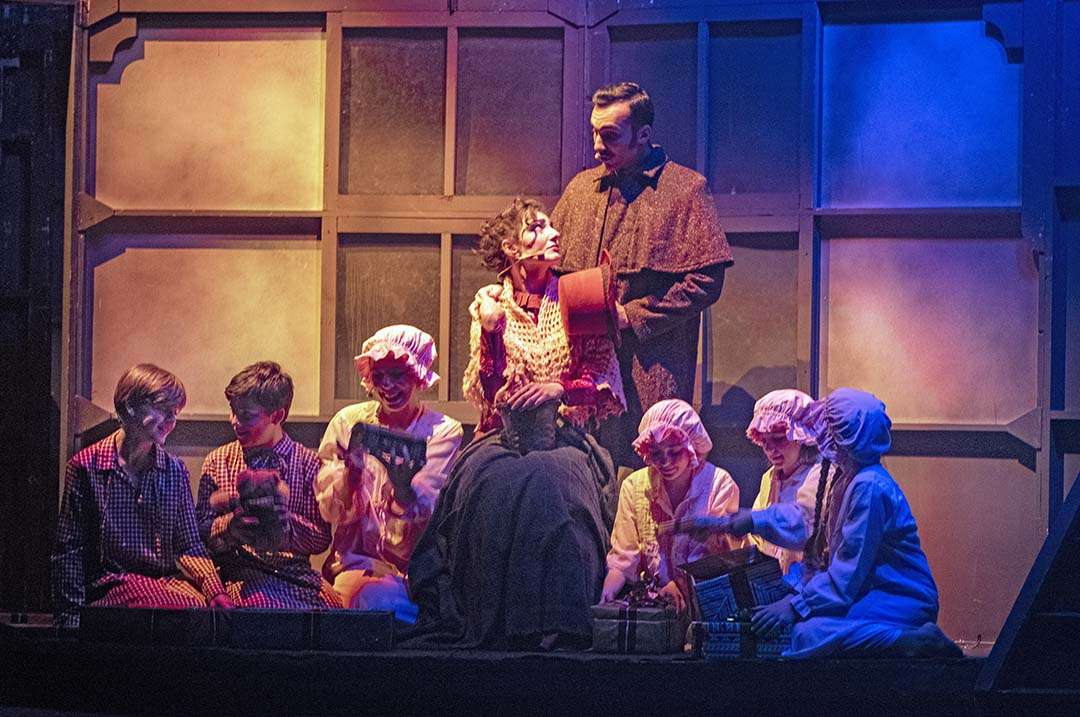A Christmas Carol Musical
Teatro DonizettiThe most famous Christmas novel by Charles Dickens, adapted for musical theater by Melina Pellicano (author and director) with music by Stefano Lori and Marco Caselle, is ready to make adults and children dream. On stage in the role of Ebenezer Scrooge, Fabrizio Rizzolo and an artistic cast of over 20 members, 150 costumes by Marco Biesta and original music. The entire visual aspect of the show is curated by Alessandro Marrazzo: lighting design, special effects, and impressive sets (with Francesco Fassone). Melina Pellicano, director and librettist in the musical adaptation aimed to be as faithful as possible to the novel because Dickens' writing is already very theatrical. The old Ebenezer Scrooge, after the death of his business partner Jacob Marley, continues to run his business with cynical greed, avoiding any human relationship and starving his unfortunate employee Bob Cratchit. Scrooge hates Christmas and not even his nephew's dinner invitation can change his mind. On Christmas Eve, he receives a visit from the ghost of his deceased partner Jacob Marley, who announces the visit of three spirits. The spirit of Christmas past shows him the mistakes of his past life, the spirit of Christmas present shows him the happiness that Christmas generates, while the spirit of Christmas future shows him his horrible fate if he does not change the life he now leads. After the visit of the spirits, Scrooge wakes up on Christmas morning profoundly changed in his soul, finally opening his eyes to feelings of generosity and love. From now on, he will never fail to celebrate Christmas and will not miss any opportunity to do good. Scrooge undergoes a transformation, an important change on Christmas Eve. Christmas can be an occasion to stop and reflect, a moment to approach change positively. It becomes an opportunity for a courageous act of transformation, which each of us would like to make but often forgets. DIRECTOR'S NOTES Scrooge's loneliness and his economic wealth are in contrast with the serenity of the family and the modest social situation of the other characters. The richness of spirit and the courage to face a less affluent situation are the true wealth. It is an old concept, but absolutely current. There are some differences in the story and the characters – says the director - but always in respect of the original story and in the spirit of Dickens. This was intentional and is a small personal way to pay homage to the writer. I chose to open the show with the monologue and song of little Tim (the youngest son of Bob Cratchit, Scrooge's employee), to entrust a child with the task of explaining "how things really are", to explain to the audience the point of view of a child who looks at the world with clear eyes and without judgment. Tiny Tim indeed tells that Scrooge "is not capable of smiling and is always angry with anyone who speaks to him", but that in reality "he is just lonely" and no

